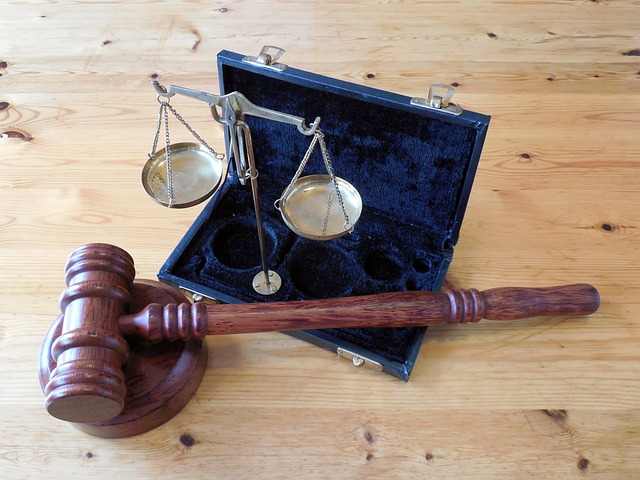As an estate executor, managing a loved one's affairs post-death involves complex tasks like validating wills, gathering records, and distributing assets. A specialized probate lawyer offers crucial support, ensuring accuracy and legal compliance throughout probate proceedings. These professionals guide executors in will validation, manage court interactions, oversee tax obligations, and facilitate estate distribution according to the deceased's wishes, making the process smoother and less stressful. Choosing the right probate lawyer is vital for effective estate administration, as they navigate complex probate services, reduce stress, and ensure duties are executed accurately.
“Estate settlement can be a complex and emotional process, especially with the added pressure of executor duties. Understanding these responsibilities and navigating probate court is crucial for a smooth transition. This comprehensive guide explores the role of probate services in managing estate administration efficiently. From validating wills to distributing assets fairly, professional assistance ensures probate proceedings run smoothly. Discover how a probate lawyer can provide much-needed support, offering expert guidance throughout the entire process.”
- Understanding Estate Executor Duties: A Comprehensive Guide
- The Role of Probate Services in Smooth Estate Administration
- Navigating Probate Court Assistance: Finding the Right Probate Lawyer
- Easing the Process: How Legal Help Can Manage Probate Proceedings Efficiently
Understanding Estate Executor Duties: A Comprehensive Guide

Understanding Estate Executor Duties: A Comprehensive Guide
As an estate executor, you play a crucial role in managing and administering the deceased’s affairs. Estate administration involves a series of legal tasks, including validating wills, gathering financial records, managing assets, paying debts, and ultimately distributing the remainder of the estate to beneficiaries. This intricate process demands careful navigation through probate proceedings, which can be complex and time-consuming. Professional probate services from a qualified probate lawyer can offer invaluable assistance throughout this journey.
A probate attorney specializes in estate settlement and probate court assistance, ensuring that every step is taken with accuracy and within legal requirements. They guide the executor duties, helping to validate wills, manage probate proceedings, and ensure the proper distribution of assets according to the deceased’s wishes. With their expertise, individuals can rest assured that their loved one’s estate is in capable hands.
The Role of Probate Services in Smooth Estate Administration

Efficient estate administration relies heavily on the expertise provided by probate services. When an individual passes away, their estate often involves complex legal and financial matters that require professional guidance. A probate lawyer plays a pivotal role in managing probate proceedings, ensuring that all aspects of estate settlement are handled smoothly. From validating wills and identifying assets to overseeing the distribution of the estate, these professionals guide executors through every step, including probate court assistance when necessary.
By leveraging their knowledge of probate law, lawyers help executeurs fulfill their duties effectively. This includes managing tax obligations, preparing necessary legal documents, and ensuring that all parties involved are protected throughout the probate process. With their support, the estate executor can focus on honoring the deceased’s wishes while navigating the intricate legal framework surrounding estate distribution, ultimately facilitating a peaceful transition for all concerned.
Navigating Probate Court Assistance: Finding the Right Probate Lawyer

Navigating Probate Court Assistance: Finding the Right Probate Lawyer
When it comes to managing estate administration and probate services, having the right legal support is paramount. A qualified probate lawyer can provide essential assistance in navigating complex probate proceedings, ensuring that all executor duties are fulfilled accurately and efficiently. They offer invaluable guidance on matters such as validating wills, managing estate distribution, and overseeing the entire estate settlement process.
Engaging a probate attorney who specializes in these areas allows for better validation of legal documents and smoother interactions with probate court. Their expertise in probate legal help can significantly reduce the stress associated with this challenging task, enabling you to focus on closing out the estate appropriately. Whether it’s guiding through tax implications or handling any disputes that may arise during probate, a skilled probate lawyer is an indispensable asset in ensuring a successful estate administration process.
Easing the Process: How Legal Help Can Manage Probate Proceedings Efficiently

When dealing with the complex world of estate administration and executor duties, seeking legal help can significantly ease the process. A dedicated probate lawyer understands the intricate nature of probate services and court procedures, ensuring efficient management of probate proceedings. They play a crucial role in guiding individuals through the often confusing and time-consuming aspects of estate settlement.
Legal professionals equipped with expertise in probate law can validate wills, navigate the intricacies of estate distribution, and provide essential probate court assistance. Their support is invaluable when it comes to handling sensitive matters, managing assets, and ensuring compliance with legal requirements. With their help, the responsibilities of an estate executor become more manageable, allowing for a smoother transition during what can be a challenging time.
When facing complex estate executor duties, seeking probate services and probate legal help can ensure a smoother estate administration process. Engaging a probate lawyer specializing in probate court assistance is key to effectively managing probate proceedings, especially when dealing with matters like validating wills, estate settlement, and estate distribution. This not only eases the burden but also guarantees compliance with legal requirements, allowing for a more efficient and stress-free executor duties execution.
